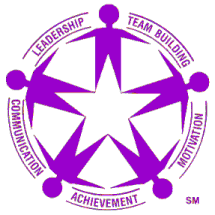

Communicate
Institute

SPRING/SUMMER courses are posted!
We have SELF-PACED (month long) and LIVE REMOTE (specific dates/times)
Start with the "Schedules" Tab for details
COURSES & DESCRIPTIONS
Adventures In Attitudes - Human Relations for Educators EDT6692
Bringing out the Best in Students: -Developing Performance Character EDT6750
Brain Power Strategies EDT6900
Courage for The Discouraged EDT6901
The Well-Informed Educator EDT6932
Creative Teaching Strategies for Teaching Core Standards EDT6725
LifePOWER: -Strategies for Reducing Educator and Student Stress EDT6690
Engaging the 21st Century Learner thru Technology EDT6749
Educating for Character -Developing Moral Character EDT6724
Effective Instruction EDT6729
Hands on Math K-8 EDT6748
Succeeding with Students of Poverty EDT6916
IQ-EQ Connections - Helping Kids Care EDT6438
Literacy for Learning - Reading & Writing Across the Curriculum EDT6701
The Teacher's Toolbox EDT6915
Time & Life Mastery - Time Management for Educators EDT6696
Positive Discipline in The Classroom EDT6731
Risk to Resilience - Strength-Based Interventions for Students EDT6747
Next Generation Literacy EDT6952
LITERACY FOR NOW AND TOMORROW
Author: Rebecca L. Zullo, M.Ed. & Kim Tucker, M.Ed.
This course will be a tremendous asset for educators in all content areas - as learning and achieving in the digital age has brought many significant challenges to modern classrooms. The demands of literacy have expanded to include skills beyond
reading and writing. With the pervasive use of technology, both in and out of school, the
WAY that students read, write, communicate, and participate in society has changed.
The tools that are used for teaching, learning, researching, communicating, and
assessing students continue to evolve. In this standards-based course, we will introduce
and explore K-12 literacy resources, in traditional and/or digital formats, and learn
practical classroom-based strategies. Be sure to bring your digital device (laptop, tablet,
and/or smartphone).
A few things the participants will learn:
● How literacy demands have evolved over the years.
● The characteristics effective reading and writing programs.
● How content-area teachers can boost the reading comprehension and writing
skills of their students.
● Strategies to enhance vocabulary building and acquisition.
● Strategies for student research and collaboration using digital tools.
● Ways in which instruction can be adapted and modified to help students meet the
standards using the tools that are currently available.
● How to help students locate and cite evidence in their reading, writing, and
assessments.
● How to find and use many free digital resources that will enhance the literacy
experiences of your students.
● Practical classroom-based strategies using the resources you have.